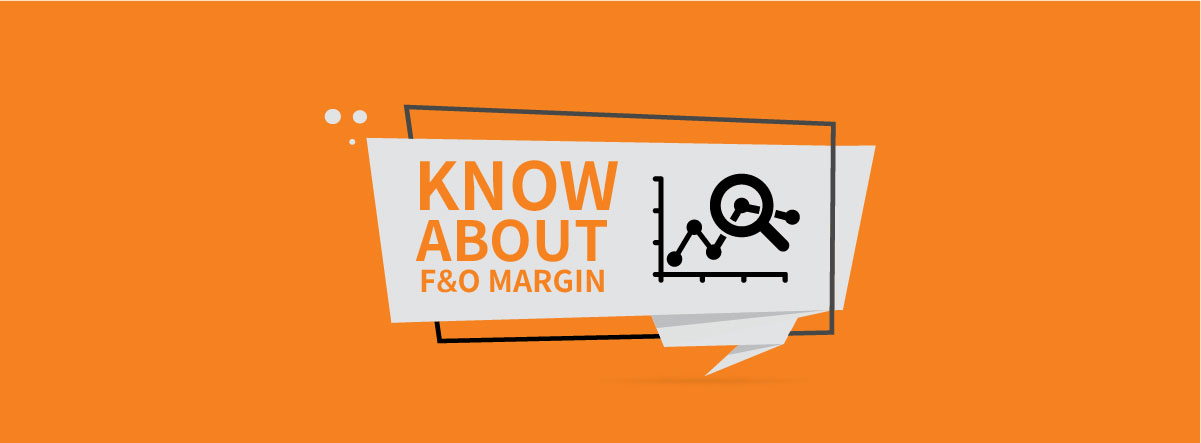Futures trading requires margins to protect investors from large losses due to price fluctuations. If you invest in Nifty futures and the index falls, you stand to incur a notional loss. Because of the inherent uncertainty in the market, margins are required to protect against potential losses.
How exactly does margining in futures work? Two primary F&O margins are often gathered. Position Initial Margin (SPAN ELM margins) must be paid in full at the moment the position is opened. First, let's take a look at the profit margins you'll have from the start.
Futures trading initial margin requirements
When you open a position in your trading account, the initial margin is calculated based on the expectation that you would maintain the position until the contract's expiration. This original margin is sometimes referred to as a carry forward margin. SPAN margins, which are based on the statistical notion of VAR (Value at Risk), and ELM margins, which are based on exposure, make up the initial margin. Prior to entering a deal, both margins must be deposited. In 99 percent of situations, the initial margin ought to be sufficient to cover the cost of giving up your position. As a matter of thumb, the initial margin will be higher if the stock's volatility is higher. The first margin solely considers the risk for the current day.
How do you determine the starting margin?
Let's break down the first margin requirement for stock futures and index futures.
The aforementioned exchange-mandated margins are the bare minimum necessary for each individual F&O position. Brokers may collect more than the required margin if they so want, but they cannot collect less. Margin increases reflect the increased risk associated with contracts that extend farther into the future. Initial profit margins are thus much larger for volatile equities than for steady ones. As an instance, Yes Bank's opening margins will be much greater than NTPC's.
Are margins reduced for intraday trades?
If you want to maintain your future position, the regular margin applies. What if you decide throughout the day that you want to close the position? Consequently, the MIS will be reduced because of the decreased risk. The intraday margin is 40% of the initial margin for index futures and 50% of the first margin for stock futures. In order to prevent mass RMS closures, the trader must identify the order as an MIS order and shut it before 3.15 p.m.
Cover orders get preferential margins
Finally, the margins for Bracket Orders (BO) and Cover Orders (CO) are much smaller than the MIS margin (CO). To protect against potential losses, a cover order always includes a stop loss on the intraday deal. The Bracket Order is a closed bracket order since it specifies a stop loss and a profit objective. In this situation, the margin will be 30 percent of the usual margins. In the same way, as MIS orders must be closed throughout the trading day, BO/CO orders must do the same.
Negative MTM margins due to price fluctuations
The MTM margin is a kind of mark-to-market adjustment. For those who have invested in RIL futures at Rs.1240, a significant drop in price below that level might be disastrous. Brokers will often verify that your margin balance is enough to pay the SPAN margin when the stock price drops. Keep in mind that the initial margin is the sum of the spread and the equity liability margin. That's still in the allowed range. A Margin Call will be sent by the broker to recover any shortfall in the margin if the stock price falls significantly, causing the margin account to fall below the SPAN margin threshold. These MTM margins apply solely to open carry positions and not to intraday, BO, or CO positions.
Conclusion:
As the last question, how does margining work with options? It's a lot easier to do. A person who purchases an option may lose no more than the amount of the premium. As a result, no further margins than the premium margin are required. However, the margins for options sales are identical to those for futures.
These articles have been prepared by Sharekhan and is not for any type of circulation. Any reproduction, review, retransmission, or any other use is prohibited. Sharekhan shall not be responsible for any unauthorized circulation, reproduction or distribution of this material or contents thereof to any unintended recipient. Kindly note that this page of blog articles does not constitute an offer or solicitation for the purchase or sale of any financial instrument or as an official confirmation of any transaction. The value of the investments may be affected generally by factors affecting financial markets, such as price and volume, volatility in interest rates, currency exchange rates, changes in regulatory and administrative policies of the Government or any other appropriate authority (including tax laws), or other political and economic developments. Please note that past performance of financial products and instruments does not necessarily indicate the prospects and performance thereof. The investors are not being offered any guaranteed or assured returns. The securities quoted are exemplary and are not recommendatory. While we would endeavour to update the information herein on a reasonable and timely basis, Sharekhan, its subsidiaries and associated companies, their directors and employees are under no obligation to update or keep the information current. Each recipient of this document should make such investigations as it deems necessary to arrive at an independent evaluation of use of the trading platforms mentioned herein. The trading avenues discussed, or views expressed herein may or may not be suitable for all investors. This information is only for consumption by the client, and such material should not be redistributed.





